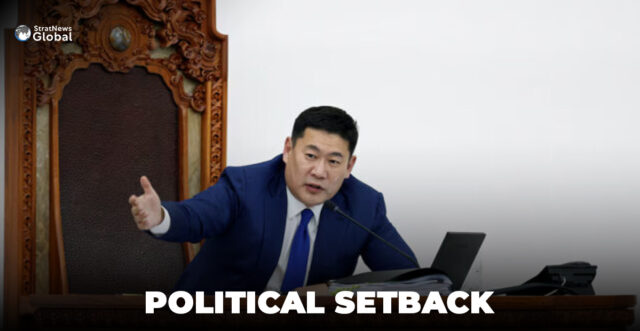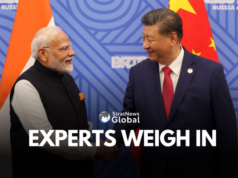Mongolia’s Prime Minister Luvsannamsrai Oyun-Erdene has resigned after losing the confidence of Parliament amid growing public outrage over corruption allegations.
The no-confidence vote, held early on Tuesday, saw him secure only 44 votes—far below the 64 required to retain his position, as reported by news portal ikon.mn.
Son Behind Downfall
The political crisis was triggered by widespread protests last month, following revelations of extravagant spending by the prime minister’s son. These reports sparked anger among citizens, many of whom took to the streets demanding accountability and Oyun-Erdene’s resignation.
Facing mounting pressure, the prime minister ultimately bowed out, marking a significant political setback.
The parliament of the world’s largest landlocked country did not pass a draft resolution on a confidence ballot, meaning Oyun-Erdene was deemed to have resigned, a parliament statement said.
Caretake PM
“It was an honour to serve my country and people in difficult times, including pandemics, wars, and tariffs,” Oyun-Erdene said after the result of the vote was known.
Oyun-Erdene, who has been prime minister since January 2021 and was re-elected in July 2024, will remain caretaker prime minister until a successor is named within 30 days.
The political upheaval comes after Mongolians last month protested for weeks in the capital Ulaanbaatar alleging corruption involving Oyun-Erdene and his family.
Oyun-Erdene did not immediate respond to Reuters’ emailed request for comment on his resignation and the corruption allegations.
Oyun-Erdene’s Regret
A statement posted on the Mongolian parliament website showed Oyun-Erdene thanking the country’s youth for their views on transparency, and citizens for their different perspectives, but said he “regrets that this is used as a political pretext and causing instability”.
Oyun-Erdene argued he had been steadfast in fighting corruption but had focused too much on large projects instead of social and political issues.
The outgoing prime minister had pushed for infrastructure and resource development projects in the mineral-rich country, outlining 14 mega projects including mineral processing centres, water diversion initiatives, dams and power plants.
(With inputs from Reuters)





